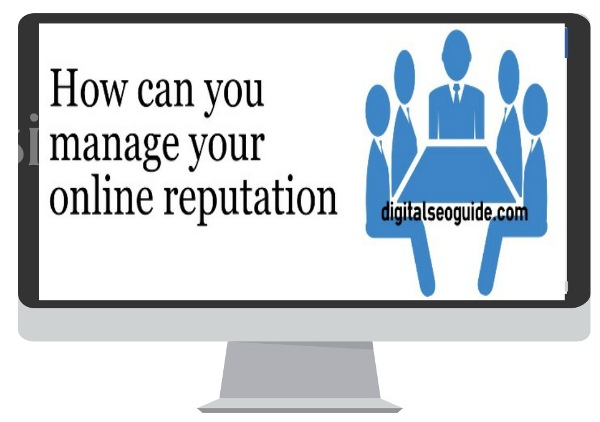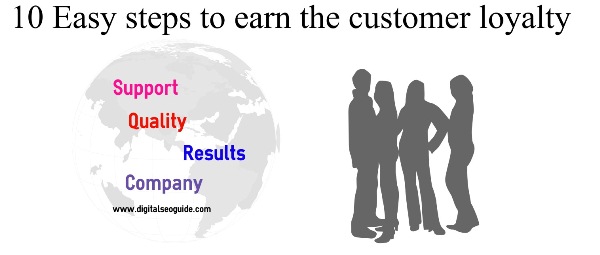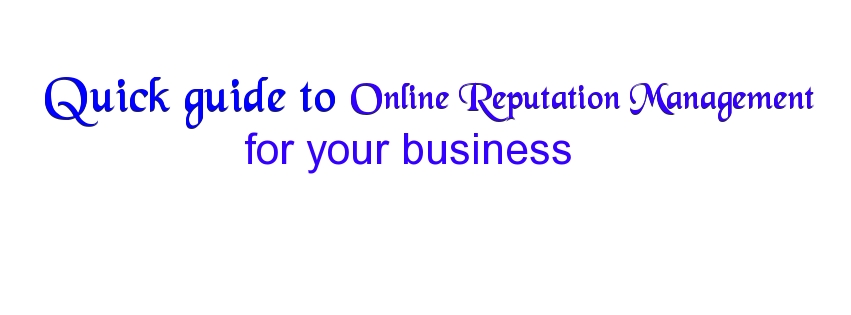How should the companies measure the performance of its reputation management?
The development of reputation management strategy and its implementation is an essential part of the marketing and promotional management of any organization. And when it is executed properly, the next big thing is the measurement of reputation. This is a complex task that requires a sound determination, skill and knowledge, a good amount of information based on researchers and their analysis, and a clear mindset to come up with the rather practical solutions.
One side, the reputation surveys provide the insight details about the company’s reputation status, i.e. its weaknesses and soundness; also, it becomes easy to prepare a ground to stand a powerful as well as a strong communication strategy. The process of measuring the reputation must be started with the evidence-based reputation surveys and their fair analysis. The main and prime object behind the launching the reputation management actions is to find out the answer to a simple question that what is the reputation of our organization and its various aspects (brand identity, products, services, and credibility) in the eyes of the clients, stakeholders, and the competitors.
Now, if we talk about the benefits of reputation measurement process, then here are the outcomes of the reputation surveys and their study:
- We can easily figure out and identify the strong and the weak aspects of our organizational reputation.
- It becomes easy to evaluate the company’s strategy concerning to stakeholders; their expectations and reviews.
- Determine the effectiveness of the various modes of communication applied in the reputation building process. Also, figure out the ways to strengthen the reputation through using various marketing and communication channels.
- If there are any existing or potential risks to the reputation of the company, they can be easily identified through this process.
There is no sense of investing a great amount of time, efforts, and resources if the results and the outcomes are not assessed and monitored on a regular basis. It is a wise idea to use the social media tools for understanding the view and approach of the stakeholders. The other valuable resource is different customer insight surveys and their concerning behavioral analysis. But the most important thing is that how you follow up from the perspective of reputation.
The measurement of performance and its role in identifying the manager’s key performance
In a general sense, what are the key performance indicators for a company’s reputation? Undoubtedly, the answer will be based on the company’s reputational position and the organizational objectives. Following are the Return on Reputation Indicators (RORs) which typically lead the reputation Key Performance Indicators:
- The reputation rankings such as trust and respect.
- Recent development in the price and the market value of the shares.
- Competitors and the related P/E ratio.
- Any decrease in the marketing costs.
- Improvement in the customer profitability, i.e. price premium.
- Credit ratings and the competitive finance costs.
- Salary cost in the comparison of a market.
- A comparative figure of job satisfaction and loyalty.
- The level of customer satisfaction.
- The decreased recruitment costs.
- Any development in the share price, if there is a critical market situation.
How to ascertain the responsibility while there is the need to follow the action for a performance of reputation management?
In a general sense, the CEO and the top management are mainly responsible for execution and the performance of reputation management. But, from a recent past, a CRO (Chief Reputation Office) is being appointed to deal with the day to day reputation management who is responsible for watching, maintaining and restoring the company’s intangible yet the most important assets, the reputation.
Reputation management is not just a task of a single official or a responsible team; it is a combined process which includes integrated and coordinated efforts of the whole organization, including marketing, communication, customer service, human resources, investor relation, business intelligence, production and supply, and all the others. In this sense, it is very important to develop a systematical action plan to manage the reputation and dealing with the concerning risks.
How can we see the performance of the reputation management efforts in the business results?
Though the reputation is an intangible asset of any organization, still, it’s as real as any other tangible capital. In a greater sense, the reputation of a company is much more valuable and vital than all the other assets combined. So, any company cannot afford to avoid the proper utilization of this prime asset or waste it.
While the forecast of the future cash inflow highly affects the value of the company, the sound reputation plays a booster role in creating the investor’s trust and the faith in the organizational capability to deal with those forecasted can inflows. We can also observe the impact of a company’s market reputation in its goodwill which is the key element of almost all the big deals.
Apart from the above, there are some other types of financial values regarding the reputation of the company. The surveys have made it clear that with a superb reputation, it is possible to earn the 5 to 7 times higher margin on the cost of any product or service. Also, the company enjoying an unchallenged reputation has to spend a less amount of marketing and promotion so the marketing costs are remarkably low.
During the crisis times, when everything gets to suffer the losses and the uncertainties, it is only the reputation that can defend and protect the company against all the odds. A strong stock market response is the best reward of the well planned and executed reputation management. If a company with a good reputation launches its new shares, it becomes easy to get the positive marketing response, no matter the shares are at a higher premium. Even when the market is falling, the companies with a good reputation face low price fall in the comparison of the others.
Conclusion:
As another great benefit of maintaining a sound reputation, the company can simply access the best resources at the lowest process and with easy efforts if it possesses a sound market reputation. For example, the finance companies often provide loans at the lower interest rate to the companies with the remarkably better credit ranking.








